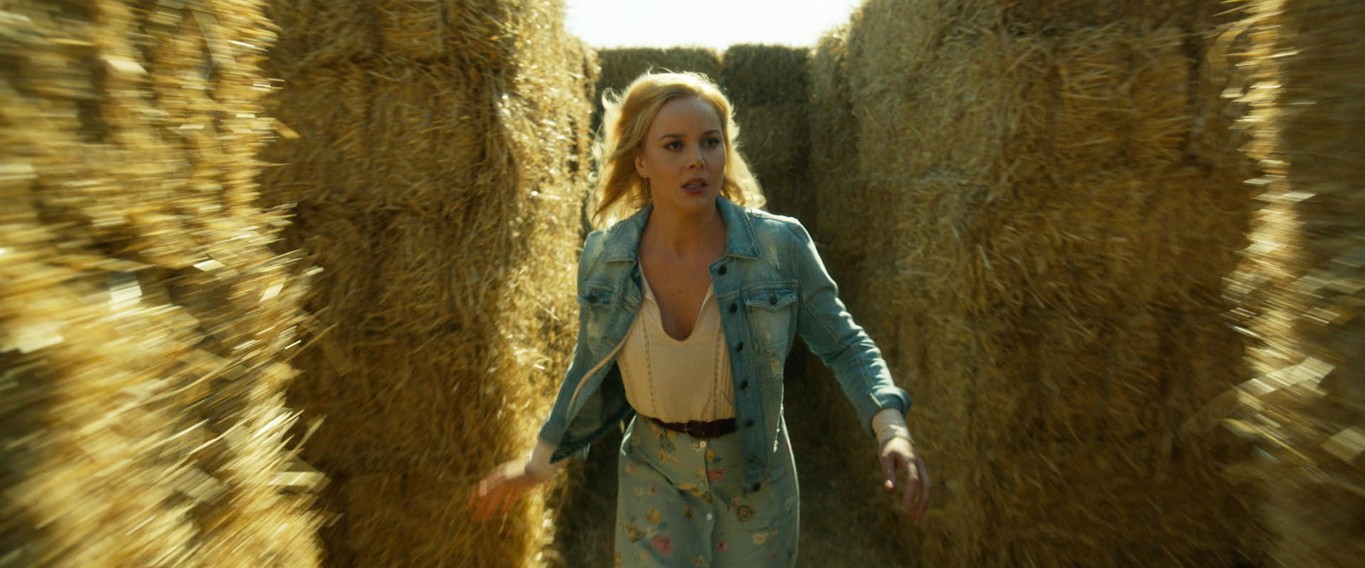TORONTO – In the trippy new psychological thriller “Lavender,” Abbie Cornish plays a mother who suffers from memory loss and a sense that she may have killed a family 20 years ago.
As a doctor, played by Justin Long, tries to help her get her memories back, her flashbacks hint at a childhood trauma — and a supernatural element.
“Lavender” director/co-writer Ed Gass-Donnelly, who shot the film in and around his home city of Toronto, says he became interested in the idea of repressed memory after hearing of a friend’s experience.
“A friend who was abused as a child and had no memory of it until much later in life, and I think a little kid can’t handle that,” he says.
“By putting that memory in a box, you can get on with your life a bit. But if you don’t have the capacity to deal with it, your body’s only other choice is to either just go nuts or break down. So it became a functional coping mechanism.”
The subject of memory manipulation and repression has brought mind-bending tension and plot twists to many films over the years — from “Eternal Sunshine of the Spotless Mind” to “Total Recall” and “The Manchurian Candidate.”
Other recent examples include “The Girl on the Train,” in which Emily Blunt’s character suffers from memory loss caused by alcoholism.
And in the upcoming “Alias Grace” miniseries, a doctor tries to tap into the memories of the protagonist, a convicted murderer played by Sarah Gadon.
Such fictional projects have very real elements to them, says Dr. Julia Shaw, who writes about false memories in the new book “The Memory Illusion.”
Shaw, who is Canadian, writes that it isn’t until somewhere between the ages of two and four that our brains are capable of creating autobiographical memories. So when someone claims to remember something from infancy, it’s a false memory.
Shaw says false memories are usually created either intentionally by others or by oneself through repeatedly imagining things happening or intensely believing something happened, guessing at details and then filling in the blanks along the way.
False memories usually start from nothing and get bigger over time. Real memories start with lots of detail and get weaker or stay the same over time.
“Certain therapeutic methods can be very suggestive and leading and police interrogation tactics can be equally problematic and can potentially create false memories,” says Shaw, a senior lecturer in criminology at London South Bank University in the U.K.
“Usually the cases that land on my desk right now involve sketchy therapy and then someone in therapy retrieving something and saying, ‘This is what happened, my therapist told me so and I believe it and here’s all the details,’ and then someone like me going, ‘Well actually, those techniques can also create false memories.'”
One is more likely to believe a false memory if they’ve had a blackout episode, like Blunt’s character did in “The Girl on the Train,” which Shaw says also involved psychological manipulation known as gaslighting.
It’s even possible to convince people they’ve committed crimes that never occurred, which Shaw says she’s done in lab studies.
“As a filmmaker, it’s a biological fascination of what the body is capable of,” says Gass-Donnelly.
“There are things I’ve definitely visualized or imagined and then years later it can be like, ‘Did that actually happen or was that just something I thought about a bunch?’ It’s scary and funny at the same time.”
The fact that a lot of our memories are unintentionally false generally isn’t a bad thing, says Shaw.
“Overall we just need to remember the gist, we need to remember the general things that happened in a way that’s good enough,” she says.
“Most of the time we don’t need entirely accurate memories, our brains don’t work that way. They just give us as much as we need to survive and as much as we need to navigate our environment.”
The take-home message of the book is to “live in the moment and not to place too much importance on our past,” writes Shaw.
“In terms of living in the moment, what it does is it gives you tremendous freedom to create your reality around what you’re experiencing right now and to reinterpret your past as you wish,” she says.
“Essentially it gives you the power to look back and say, ‘The past is pretty much all fiction anyways. I may as well focus on what’s happening now and what’s happening in the future,’ because that’s what memories are for.
“Memories are there for you to survive and figure our your environment right now and to figure out what you’re going to do next.”
“Lavender” is now playing in theatres.







